Live Reporting
11 March 2020. 22.31 GMT.
With seconds left, Atletico Madrid's Alvaro Morata slides a shot past Liverpool's Adrian to complete a remarkable victory at Anfield.
As the ball hits the net, 3,000 Atletico fans erupt and manager Diego Simeone celebrates before them.
But as the lights went out on Liverpool's Champions League defence, so they did on football - Covid-19 shutting the game down for three months and leaving European grounds empty indefinitely.
A subsequent investigation found the game was one of two major sporting events in the UK that week, along with the Cheltenham Festival, that "caused increased suffering and death".
Indeed, by the end of March last year, Liverpool was a suspected coronavirus hotspot, with one of the highest suspected number of cases in the country.
A total of 45,229 people tested positive for Covid-19 in England at least once in the week to 3 March, the latest NHS Test and Trace figures show.
That is down 34% on the previous week - and is the lowest number since 23 September.
There were 2.8 million lateral flow - or rapid - tests conducted in England in the week to 3 March. That is the highest weekly total since rapid testing began, while 1.1 million lab-processed PCR tests were conducted, the lowest volume since mid-October.
The figures come a day after the Public Accounts Committee said the impact of Test and Trace was unclear despite £37bn having been set aside for it.
Read more on how Test and Trace works here.
As spring approaches, the question many of us are asking is: "When can we go on holiday again?"
While we'll have to wait for a report on international travel on 12 April for that, Transport Secretary Grant Shapps says he expects there will need to be a combination of vaccinations and testing "in order to have international travel work again".
He also reminds people that holidays abroad are banned until 17 May, at the earliest, and says there is "a lot of work to be done" ahead of that date.
Here is a reminder of the current travel situation.
To help make sure people have access to accurate information about coronavirus vaccines, BBC Asian Network is teaming up with doctors to translate advice into South Asian languages.
You can find vaccine information in Tamil, Punjabi, Urdu, Sylheti and Gujarati here.
Uganda kicked off mass vaccination against Covid-19 on Wednesday, after receiving 864,000 doses of the Oxford-AstraZeneca vaccine last week.
Health Minister Jane Ruth Aceng was the first to receive a jab at the main hospital in the capital, Kampala.
Priority is being given to health workers in the country and many of them lined up at Mulago referral hospital in Kampala to receive it.
Other groups scheduled to receive the vaccine are security personnel considered essential in supporting the Covid-19 response, teachers, adults aged over 50 years, and people with underlying health conditions.
The vaccination campaign will spread to health centres countrywide for the next five days.
Those vaccinated now will receive their second doses in May and June.
An additional supply of 2,688,000 vaccine doses from the Covax scheme is expected in June.
Uganda plans to vaccinate 49.6% of its population in a phased manner.
The surge in Covid cases in January hit non-Covid care, data published by NHS England shows.
Fewer than half the expected number of operations were done, pushing the waiting list to a record-high of 4.6 million.
More than 300,000 of those have been waiting more than a year for treatment - compared with 1,600 before the pandemic began.
Surgeons describe it as a dire situation that even caused some cancer treatments to be postponed.
Tim Mitchell, of the Royal College of Surgeons of England, says: "Behind today's statistics are people waiting in limbo.
"Many will be in considerable pain, others will have restricted mobility and be at risk of isolation and loneliness.
"Dealing with this daunting backlog will take time, and also sustained investment in the NHS."
NHS England says that, given the scale of Covid admissions seen in January, some disruption was unavoidable.
Medical director Prof Stephen Powis says that admitting more than 100,000 Covid patients to hospital in a single month "inevitably had a knock-on effect on some non-urgent care".
But hospitals treated more than a million people with other conditions in January, at the peak of the winter wave, nearly twice as many as they did last April.
We've got more on the NHS England figures out this morning.
They're giving us a picture of hospitals in England this January compared to January 2020, before the coronavirus pandemic.
They show that a total of 171,231 urgent cancer referrals were made by GPs in England in January 2021, compared with 191,852 in January 2020 - a year-on-year drop of 11%.
This follows year-on-year increases of 7% in December 2020 and 2% in November.
Urgent referrals where breast cancer symptoms were present - although not initially suspected - were down from 14,299 in January 2020 to 12,437 in January 2021, a fall of 13%.
We've had a statement from AstraZeneca after Denmark suspended use of one batch of its coronavirus vaccine.
The move came after a woman died from blood clots after having received a dose.
A spokesman says: “Patient safety is the highest priority for AstraZeneca.
"Regulators have clear and stringent efficacy and safety standards for the approval of any new medicine, and that includes [the so-called] Covid-19 Vaccine AstraZeneca.
"The safety of the vaccine has been extensively studied in Phase III clinical trials and peer-reviewed data confirms the vaccine has been generally well-tolerated.”
The EU regulator EMA has said there is no indication the vaccine causes blood clots.
Transport Secretary Grant Shapps has told the House of Commons that the government's Global Travel Taskforce will introduce a travel certification to allow people to travel abroad.
He says this could be done by using schemes like the International Air Transport Association's travel pass or the World Economic Forum's common pass.
He says he has been having conversations with his US counterparts and "many others around the world" in order to get "travel going again".
The transport secretary says the Global Travel Taskforce report will be made public on 12 April.
Shapps said on Wednesday that it was still too early to book a holiday.
Here is an explanation of how such certificates or vaccine passports could work.
We've heard that officials in Denmark say they have received reports of fatal or life-threatening blood clots in a small number of people who had recently received a dose of the Oxford-AstraZeneca coronavirus vaccine.
The news from Denmark may sound worrying, but it is not yet known if there is any connection between the vaccine and fatal or life-threatening blood clots.
Europe’s drugs regulator, the EMA, says there is currently no evidence to link the vaccine to the illnesses.
It was on Sunday that a 49-year-old woman in Austria died from multiple blood clots. She had been vaccinated 10 days earlier. Another person who received a shot from the same vaccine batch was also hospitalised for a blood clot in the lung.
As of 9 March 2021, two other reports of thromboembolism have been received for this batch, ABV5300, that contained a million doses and was delivered to 17 EU countries, including Austria and Denmark.
A full investigation into batch quality is ongoing, but a defect is considered unlikely.
Overall, 22 cases of thromboembolic events have been reported among the three million people vaccinated with the AstraZeneca vaccine in the European Economic Area.
Any approved treatment, including vaccines, carries a risk of some side effects for some people, but most are usually mild and severe ones are rare.
A&E attendances at hospitals in England continue to be below levels of a year ago, according to the latest figures from NHS England.
A total of 1.3 million attendances were recorded in February 2021, down from two million in February 2020.
After adjusting for the leap year in 2020, NHS England says attendances are down year-on-year by 33%.
NHS England says the drop is "likely to be a result of the Covid-19 response" - suggesting that people are still staying away from A&E departments because of the coronavirus outbreak.
Denmark has suspended use of one batch of the AstraZeneca vaccine after a woman who received a dose died from blood clots.
Another person, who received a jab from the same batch ABV5300, was also hospitalised with clots.
EU regulator EMA says there is currently no indication that vaccination has caused these conditions, which are not listed as side effects with this vaccine.
EMA’s safety committee PRAC is investigating the cases reported with the batch as well as all other cases of thromboembolic events, and other conditions related to blood clots, reported post-vaccination.
The information available so far indicates that the number of thromboembolic events in vaccinated people is no higher than that seen in the general population.
As of 9 March 2021, 22 cases of thromboembolic events had been reported among the three million people vaccinated with AstraZeneca's vaccine in the European Economic Area.
Young people have had to cope with anxiety over schoolwork, on top of limits on their social lives and contact with friends.
One group from a range of organisations in Northern Ireland told Stormont's Education Committee about the pandemic's impact on their mental health.
Video content
Covid-19 is taking a "severe toll" on conservation efforts, with multiple environmental protections being rolled back, according to research.
Conservation efforts have been reduced in more than half of Africa's protected areas and a quarter of those in Asia, the International Union for the Conservation of Nature (IUCN) says.
And 22 countries are rolling back protection of natural areas. Such areas include pristine forests, wilderness areas and natural habitat that supports endangered species.
IUCN director general Dr Bruno Oberle says the new research revealed "how severe a toll the Covid-19 pandemic has taken on conservation efforts and on communities dedicated to protecting nature".
As we mentioned a few moments ago businesses involved in the aviation industry, including Rolls-Royce, are struggling amid lockdowns and travel bans.
Transport minister Robert Courts is answering MPs' questions in the House of Commons, including addressing support the government is providing to the sector.
He says the government has given approximately £7bn of support over the course of the pandemic to the aviation industry.
The minister adds the government is supporting the sector through the global travel taskforce, and says "it is through getting people travelling sustainably and robustly that we will see brighter days ahead".
Shop owners in a Welsh market town say they have been "treated like children" with a lack of detail about when non-essential retailers can reopen.
Welsh Government ministers will meet later to finalise a lockdown review which could see non-essential retail reopen.
But shop owners in Abergavenny, Monmouthshire, told BBC 5 live they had not been given enough information.
The Welsh Government said it could not provide as much certainty and predictability as it would like.
Lucy Hywel, who owns a gift shop called That's Lovely That and is secretary of the Y Fenni Business Community, says she cannot buy some stock, such as food items, without knowing whether reopening will be allowed.
"We're a year down the line with this pandemic and they should have learned by now how to communicate with people. We're being treated like children in a room and not being given any information.
"We can't make decisions for our own businesses if we're not informed and prepared."
Aircraft-engine maker Rolls-Royce is reporting a plunge into the red as the collapse in air travel takes its toll.
Boss Warren East says 2020 had been "unprecedented", with the company making a loss of almost £4bn, after a £583m profit the year before.
The company makes most of its money servicing engines, and the Covid-driven fall in airline travel has slashed revenues.
The firm has cut jobs and raised cash from investors to bolster its finances, but expects to burn through another £2bn this year as it restructures its business.
John Hollis didn’t realise he’d been infected with Covid-19. But he later discovered he’s one of the rare people who has “super antibodies”.
The antibodies are so good at killing the virus, he’s practically immune to the disease.
Still, if scientists hope to find others like John, they’ll have to tackle long standing mistrust among the African-American community.
Video content
Labour's deputy leader Angela Rayner says Sir Keir Starmer's approach to handling the pandemic as the leader of the opposition is the right one.
"Keir Starmer made a decision, which I think was the right one, to try and be constructive, and to ensure that we gave constructive opposition that worked in the national interest," she tells BBC Radio 4's Today programme.
She says it was not giving the government "an easy ride" and says: "It's incredibly frustrating, especially when you see the kids not getting the laptops they need, when they're not giving them the food, when billions of pounds have been squandered.
"We've highlighted those things but we've tried to be constructive."
Cancer patients are much less protected against Covid-19 than other people after one dose of the Pfizer vaccine, the first real-world study in this area suggests.
Researchers at King's College London and Francis Crick Institute warn that a 12-week wait for the second dose could leave them vulnerable.
An early second dose appeared to boost cancer patients' protection.
Cancer charities are calling for the current UK vaccine strategy to be reviewed.
But Cancer Research UK added that the small study had not yet been reviewed by other scientists and people undergoing cancer treatment should continue to follow the advice of their doctors.
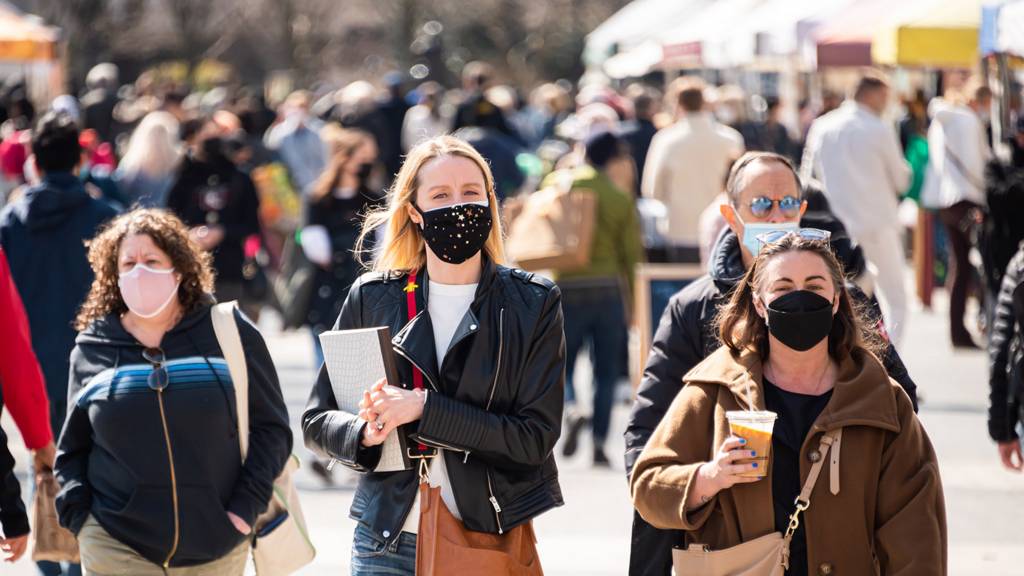

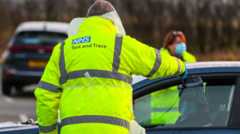

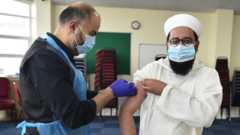
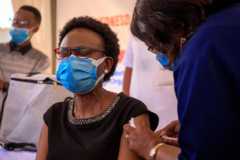

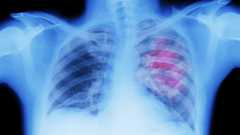


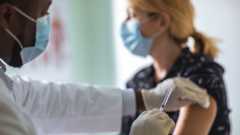
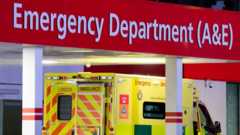



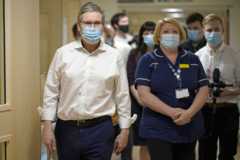


No comments:
Post a Comment